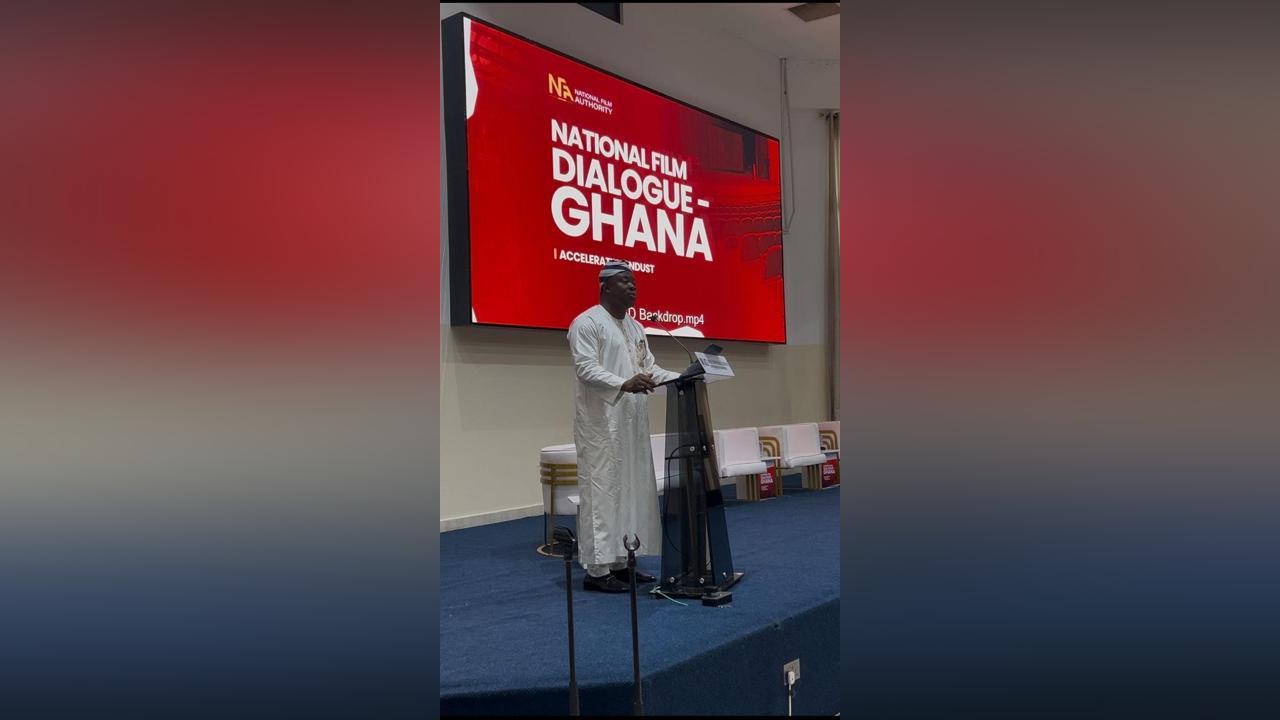Africa-Press – Ghana. Mr Yussif Issaka Jajah, Deputy Minister for Tourism, Culture, and Creative Arts, has reaffirmed the government’s commitment to developing Ghana’s film industry.
He said, “Film is not only entertainment but a mirror of our society, a vessel of our heritage, and a bridge to the world. Our stories deserve to be told, across Africa and beyond.”
Speaking at the National Film Industry Dialogue held in Accra, Mr Jajah emphasized the government’s intention to position the creative sector as a strategic pillar for economic transformation, cultural preservation, and global influence.
Organised by the National Film Authority (NFA), in partnership with the Ministry of Tourism, Culture, and Creative Arts, on the theme: “Accelerating industry development”, the dialogue aimed to unite stakeholders to tackle persistent challenges such as financing gaps, limited market access, and weak production infrastructure.
He outlined key priorities for the film sector, including job creation, tourism promotion, attracting foreign investment, and strengthening national identity.
He further called for legislative support and investment in infrastructure to make Ghana a competitive film production hub in Africa.
Madam Kafui Danku-Pitcher, Executive Secretary, NFA, described the film industry as one rich in talent and potential but burdened with systemic obstacles.
“We must bring everyone to the table, government, private sector, investors, filmmakers, and storytellers, to chart a bold new path,” she said.
The event attracted a broad mix of participants, including government officials, diplomats, development partners, and professionals from across the creative arts ecosystem.
Discussions focused on innovative financing models, corporate partnerships, and enhancing global visibility for Ghanaian cinema.
Panel sessions featured industry leaders such as Ivan Quashigah, Board Chair NFA, Razak Abdulai, Chair, Film License and Accreditation Committee, and George Bosompim, Chair, Film Policy Committee. Key topics included digital innovation, emerging film trends, financing mechanisms, and expanding distribution networks.
Organizers and stakeholders expressed optimism that the dialogue would be a catalyst for policy reforms, targeted investments, and collaborative efforts to unlock the full economic and cultural potential of Ghana’s film sector.
For More News And Analysis About Ghana Follow Africa-Press







